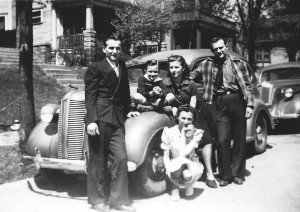“So, like you know Nick’s mom?” the teen’s pony tail swished behind her as she walked.
“Yeah, like she’s blonde right?” said the girl in the middle of the three, her short-shorts hiking up oh, so far.
I huffed and puffed behind them on the walking trail and made sure I kept up so I wouldn’t miss a word.
The girl on the right chimed in with awe in her voice. “She’s really good-looking.”
“No kidding,” said Ms. Pony Tail. “She looks exactly like Carrie on Sex in the City. Her body, anyways.”
All three murmured their agreements.
Just a tidbit of conversation, but a goldmine for a writer. Why? Because if you’re not around teenagers, you don’t know how they sound any more. Whether they’re in your young adult novel or in another work of fiction, their dialogue needs to sound real. Nothing worse than phony characters!
Ever read a book for adults with a child who doesn’t sound kid-like? The talking doesn’t match the character, where they live, or time period? Fake. Or lines of useless talk without a purpose?
So what makes dialogue good?
Dialogue should show character and move the story forward. Talk should be action. Can you get your characters’ words to heighten conflict? Sometimes great dialogue has subtext, or a secondary meaning when words that mean one thing on the surface, but underneath they have a deeper emotional meaning. And occasionally dialogue is important because of what isn’t being said. The elephant in the room that no one is talking about.
It reminds me of an incident once years ago when my husband, young son and I traveled to see his parents, brother and sister-in-law. We talked in the living room for a couple of hours and then took separate cars to meet at a restaurant. In our car I mentioned to Bob that his mother was upset with his father and my sister-in-law knew, but I hadn’t figured out the reason yet. And my sister-in-law was irritated about my mother-in-law over an issue too, but we’d learn why at the restaurant.
Bob’s mouth dropped open. “You are nuts. We talked about the weather, everyone’s health and what the kids were doing in school. How did you get all of that out of mindless conversation?”
“You weren’t paying attention!” I said. “Watch the body language, the eyes, listen to the voices.”
My husband shook his head in disgust. “You are wrong, Liz. Totally wrong.”
Of course, we discovered the source of my mother-in-law’s irritation with her husband, and my sister-in-law’s problem with my mother-in-law. Later, he grew to appreciate my “women’s intuition.” But I don’t think it’s limited to women. All writers have this when they are working.
And when aren’t we?
Writing Tips:
1. Don’t use substitute words for “said.” I just unearthed a beginning writing piece of mine from a trillion years ago and I’m embarrassed to say each time someone talked I used gasped, murmured, whispered, indicated, questioned, etc. so often it was embarrassing. Occasionally it’s appropriate but generally, use SAID. it will make your writing flow more smoothly.
Or, skip the tags and employ an action. (See above. Bob’s mouth dropped open. The teen’s pony tail swished behind her as she walked.)
2. Don’t use dialogue to tell information a character would already know. Example:
“Mary, you are my very best friend. I’ve known you all my life and your mother is our horse’s vet. She saved his life two times.”
Writing Prompts
1. Listen to real dialogue wherever you go. Keep a journal. Jot it down after you hear it so you won’t forget. (But try not to write it down as you walk, or you’ll be caught like Harriet the Spy, by Louise Fitzhugh.) Choose a piece of real dialogue and create a story with it.
2. Write a story with special buzzwords. These are words that each and every hobby or occupation has. Does your character love horses? Research horses. Interview a horse lover. Read horse books. How does a horse lover talk about them? What are the “horse words” that would go with this character?
My husband was an engineer and he wrote a recommendation for one of his secretaries and said she had good “phone presence.” This time I thought HE was nuts. But sure enough, in that industry, it was exactly what they called good phone etiquette.
3. Write a story about you with real dialogue. Read your dialogue out loud. (In fact, read ALL dialogue you EVER write out loud!)
4. Check a recent project of yours. Do you have long narration that needs to be broken up with dialogue? Make sure your piece is balanced. Dialogue helps provide a balance and is good for pacing. Need faster pacing? Write short dialogue and skip tags. But don’t have huge blocks of dialogue, either. Make sure you have a balanced story that flows well. Read it aloud to make sure it feels just right.















